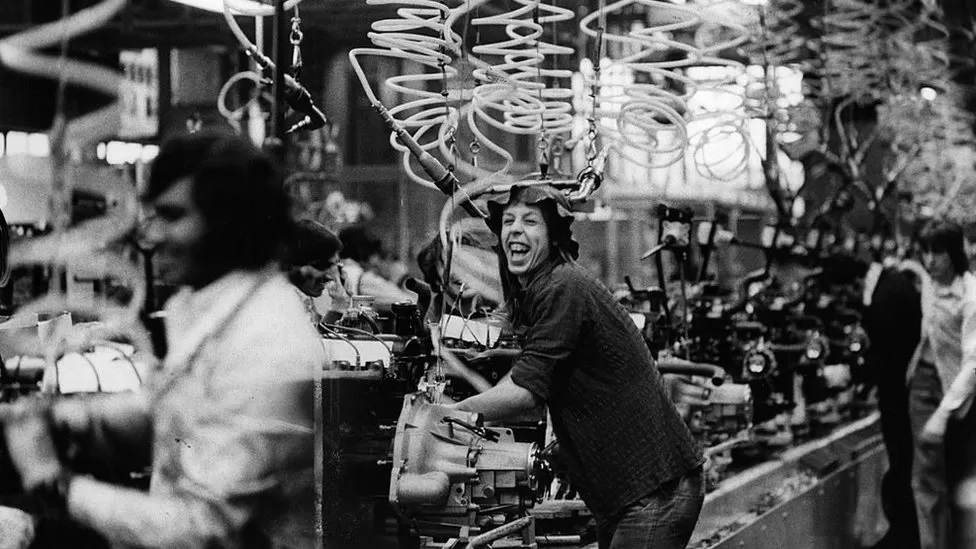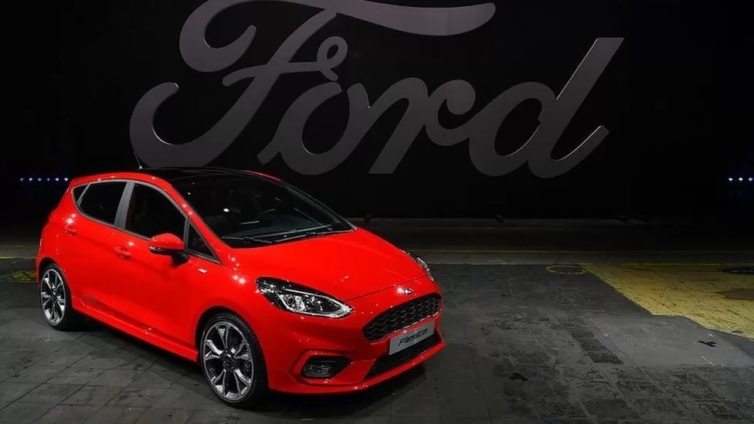The popular Ford Fiesta is set to be discontinued as early as next year as costs of parts rise and drivers opt for SUVs, the BBC understands.
Ford bosses are expected to announce in the next few days that the production of the Fiesta will end by mid-2023.
Executives are believed to be holding talks with dealers, suppliers and staff ahead of the announcement.
The Sun first reported that Ford had no plans for an electric version of the car despite its popularity.
A spokesman for Ford said that it was "accelerating our efforts to go all in on electrification", and so the company is reviewing the portfolio of cars it has on offer.
He added that the carmaker does not comment on speculation and that more information would be made available soon.
The Fiesta is currently produced in Germany, although the first model rolled off the production line in Dagenham, Essex, in 1977.
The car was at the forefront of the US carmaker's efforts to corner the British car market because of its more affordable price point.
It was created originally as a more fuel-efficient, small car in the wake of the 1973 oil crisis. More than 20 million of the cars have since been built for customers worldwide after it shot to the top of best-seller lists and remained there for decades.

In recent years, it has been displaced by newer models such as the Puma. Although last month, the Fiesta was still the sixth best-selling new car in the UK with 4,570 registrations, according to the latest data from industry body the Society of Motor Manufacturers.
Ford is thought to be using electrification as an opportunity to reinvent the brand for eco-conscious consumers.
They have already announced an electric version of the F-150 pickup, one of the best-selling vehicles in the US, and launched an electric SUV under the Mustang brand.
As the UK's 2030 ban on new petrol and diesel cars approaches, it is thought the Puma, a smaller, hybrid, SUV, will take the lead as the more affordable option as Ford puts more of its focus on design.
It has already dropped the Focus model too, without an electric version tipped for production.
The company, which is investing $50bn (£43.bn) globally through 2026 to electrify its fleet, now says it is on track to deliver more than two million electric vehicles annually by 2026.
Latest Stories
-
Cedi appreciation: We must build reserves that allow long-term predictability – Prof Bopkin
8 minutes -
Nine reported killed in Russian strike on civilian bus in Ukraine
32 minutes -
Inaction is the main cause of challenge in power sector – Ing. Amissah-Arthur
32 minutes -
Ghana’s marine economy: A strategic choice between fishing and coastal tourism
39 minutes -
Bad Power Purchase Agreements signed by previous NDC gov’t coming back to haunt them – Ahiagbah
50 minutes -
Support private sector role in ECG power distribution – Prof Bopkin
1 hour -
Energy sector reforms crucial for economic stability – Prof Bokpin
1 hour -
Galamsey: 9 arrested, 4 excavators seized in raid at Akani
2 hours -
Livestream: Newsfile discusses looming power crisis, cedi depreciation and dollar gift saga
2 hours -
Only captains will be allowed to approach referee in the Premier League next season
3 hours -
Man Utd co-owner Ratcliffe ‘loses quarter of total wealth’
3 hours -
Highlife artiste Dada KD is dead
4 hours -
Bawumia speaks at Cambridge Africa Business Conference today
4 hours -
Knicks crush Celtics to reach Conference Finals
4 hours -
University of Ghana slams Auditor-General’s report, denies GH¢59.2 million payroll overstatement
10 hours

